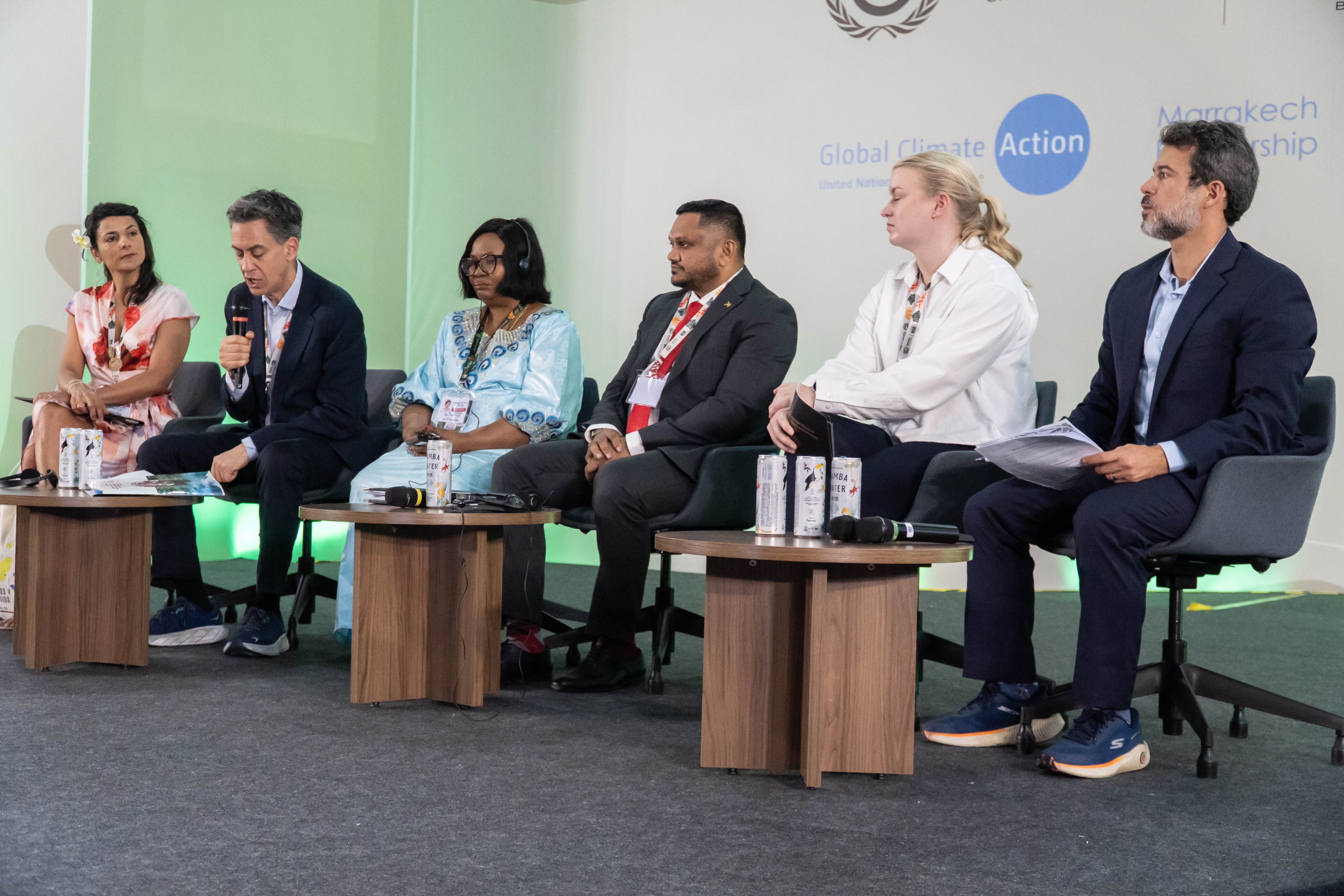Brazil Leads Global Dialogue on Financing Solutions for Forest Protection
Mechanisms such as the TFFF, a new coalition on jurisdictional carbon markets (JREDD) and an instrument designed to connect investors with sustainable initiatives—were presented. The event brought together global leaders, the private sector, and civil society at COP30

With information from the Ministry of Environment and Climate Change, Laura Marques, and Fabiana Otero / COP30
On Monday, November 17, COP30 brought the issue of forests to the forefront. Brazil led a ministerial event aimed at unlocking financing for the protection of these biomes and the fight against deforestation. Mechanisms such as the Tropical Forests Forever Fund (TFFF) and the launch of the JREDD+ coalition were presented.
The Executive Secretary of Brazil’s Ministry of the Environment and Climate Change, João Paulo Capobianco, emphasized the need for joint action. “The challenges are real, and there has never been so much knowledge available. We need a collective effort through 2030 in which tropical countries share experiences, financial partners align instruments with results, civil society and the private sector co-create solutions, and Indigenous peoples and local communities are recognized as protagonists and direct beneficiaries,” he said.
The dialogue brought together representatives from the governments of Colombia, Guyana, the Democratic Republic of the Congo, the United Kingdom, and Norway. Also participating were representatives from BTG Pactual Timberland, Ambition Loop, Brazil’s National Treasury, the World Bank, Conservation International, the United Nations Environment Programme (UNEP), and private sector entities such as Tencent and Federated Hermes, among others.
Current Landscape and Prospects
According to a study by the United Nations Environment Programme (UNEP), financing for forests remains imbalanced. In 2023, global investments in forests totaled only USD 84 billion per year, while USD 300 billion annually is required to meet the targets established by the Rio Conventions. For tropical forest countries such as Brazil—whose conservation efforts prevent global GDP losses of up to USD 81 billion annually—USD 67 billion per year will be needed by 2030.
The Director of UNEP’s Climate Change Division, Martin Krause, stated that the world has never had so many mechanisms available to address this issue.
“The task now is to build a predictable, transparent, and fair finance ecosystem,” he emphasized.
The General Coordinator for the Action Agenda at the COP30 Presidency, Bruna Cerqueira, urged countries and institutions to remain engaged.
“Stay committed to these plans to accelerate solutions. Let us reach the next COP and present even greater results together,” she said.
Forest Fund
According to Brazil’s Ministry of Foreign Affairs, the Tropical Forests Forever Fund (TFFF) has so far been endorsed by 60 countries and the European Union. As of Monday, the following nations have joined the initiative: Antigua and Barbuda, Armenia, Australia, Austria, Belgium, Bolivia, Brazil, Burkina Faso, Cambodia, Canada, China, Colombia, Costa Rica, Cuba, Denmark, the Democratic Republic of the Congo, Dominica, Ecuador, Ethiopia, Finland, France, Georgia, Germany, Ghana, Guatemala, Guinea, Guinea-Bissau, Guyana, Honduras, Indonesia, Ireland, Japan, Liberia, Luxembourg, Madagascar, Malaysia, Mexico, Monaco, Mozambique, Myanmar, Nepal, the Netherlands, Nigeria, Norway, Pakistan, Palau, Panama, Papua New Guinea, Peru, Portugal, Rwanda, San Marino, São Tomé and Príncipe, Sierra Leone, South Sudan, Sweden, Suriname, the United Arab Emirates, the United Kingdom, and Zambia.
JREDD+
Guyana’s Minister of Natural Resources, Vickram Bharrat, announced the JREDD+ initiative. The system generates carbon credits for countries and large subnational jurisdictions, with the potential to mobilize between USD 3 billion and USD 6 billion per year by 2030. This coalition seeks to bring together forest countries, Indigenous organizations, investors, standard-setting bodies, and civil society.
Earth Investment Engine
Presented by the Chilean non-governmental organization Ambition Loop, this mechanism aims to promote the bioeconomy, particularly in Latin America. According to Nigel Topping, co-founder and co-CEO of Ambition Loop and former UN High-Level Climate Action Champion at COP26, the initiative encompasses over 700 opportunities valued at more than USD 29 billion.
Eco Invest Brazil
Eco Invest is a platform that promotes sustainable private investment and is coordinated by two Brazilian ministries: the Ministry of Finance (MF) and the Ministry of the Environment and Climate Change (MMA). According to Mario Gouvêa, who coordinates the tool within the National Treasury, the initiative mobilized USD 6 billion in its latest auction, supporting a new generation of integrated agroforestry systems.
